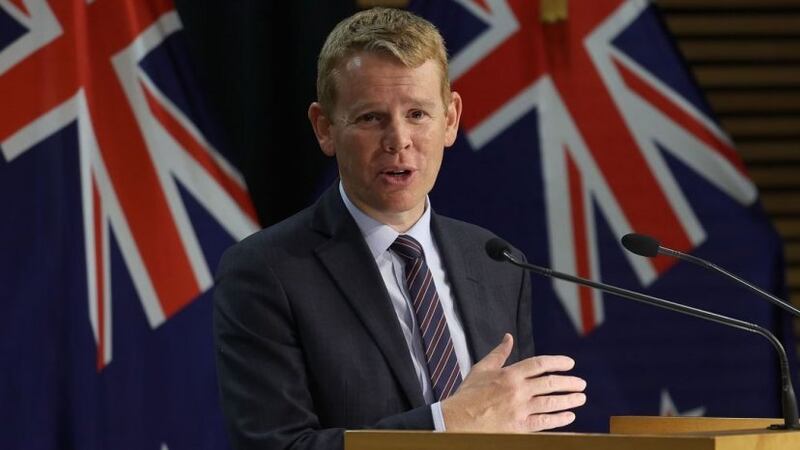Prime Minister Chris Hipkins has dumped a raft of policies on the government legislative agenda as it prioritises Cyclone Gabrielle recovery, and tackles the cost of living crisis for low-income earners. Photo / Marty Melville / NZME
The government says it will increase benefits in line with inflation instead of (lesser) average wages, in a move it hopes will help those on low incomes.
The benefit increases announcement came during Prime Minister Chris Hipkins' post-cabinet press conference today, alongside what's been branded a 'policy bonfire' by political commentators.
Among the policies being axed or limited are decreases to speed limits and a lowering of the voting age. alcohol reforms, a used container refund programme and a number of clean car upgrades or social leasing programmes have also hit the skids.
Hipkins says combined with a round of cuts announced when he took office, the government will save around $1 billion, giving it "more bandwidth to deal with [the] cost of living" and Cyclone Gabrielle.
"The two lots of reprioritisation ... will be reallocated to support New Zealanders with the cost of living," he said.
"That's in addition to the over $700m in savings we reallocated to fund the petrol excise cut and half-price public transport extension through to the end of June."
Benefits pegged to inflation instead of average wage growth will cost the government an extra $311 million because average pay rises are 6.24 per cent, while inflation is 7.22 per cent.
The weekly jobseeker support payment for a couple with children will rise by $40.86, or a total of $606.86. In comparison to the $601.32 they would have gotten under wage-aligned policies, that is $5.54 more.
"Alongside this, working families will see increases to Working for Families, including an extra $4 for Best Start Payments taking it to $69 per week and an increase of $9 for the eldest child rate of Family Tax Credit lifting it to $136 per week." Hipkins said.
The increase from April 1 will be accompanied by already announced measures to boost the minimum wage by $1.50 an hour to $22.70, and the childcare subsidy announced in November 2022.
"It was a practical solution to ensure those being supported by the government didn't fall behind," Hipkins said.
Axed agenda:
- The clean car upgrade, which gives people a grant for a cleaner vehicle or a public transport subsidy if they scrap an old gas guzzler is being stopped.
- Speed limit reductions will be significantly narrowed to refocus on the most dangerous one per cent of highways, with some changes also around schools and marae and in small townships that a state highway runs through.
- The social leasing car scheme for families on low incomes was proving difficult to implement and many of the areas where it was trialled were affected by recent severe weather, according to the government.
- Work on the legislation that would lower the voting age to 16 in the general election - but would have required the support of three-quarters of MPs to pass, is being refocused on lowering the age for local body elections, which does not need to meet that threshold.
- Advice looking at reform of alcohol pricing, sponsorship and advertising will be pushed back to April 2024 instead of March 2023.
- The container return scheme that would have given small refunds to people who return used containers has been binned.
- Advice following an Employment Court ruling that was set to look at the differences between a contractor and an employee, will be put on hold until all cases are heard.
- The goal of increasing and improving public transport is being scaled back to target Auckland, Hamilton, Tauranga, Wellington and Christchurch.
- Work on Auckland Light Rail will continue but will be delivered in stages, with the first stage expected to be confirmed by the middle of this year.


